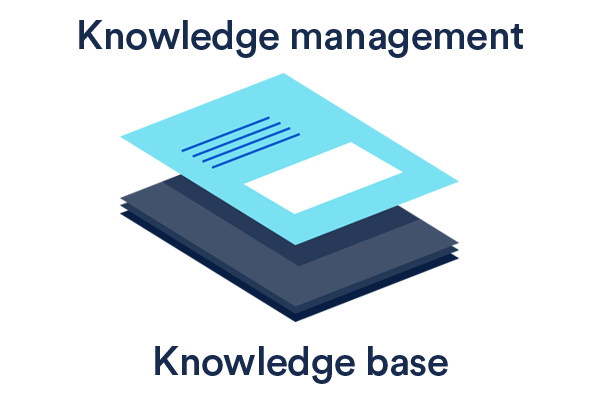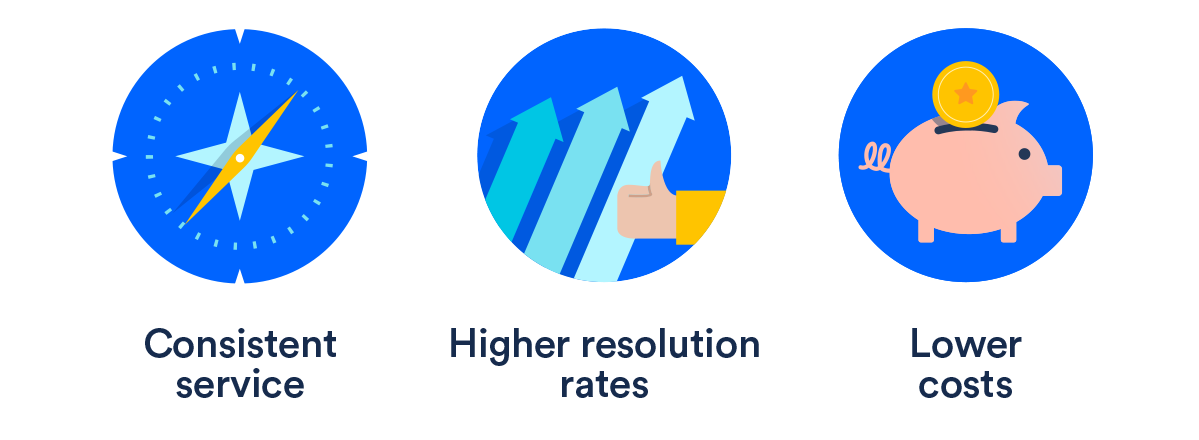What is a knowledge base?
A knowledge base is a self-serve online library of information about a product, service, department, or topic.
The data in your knowledge base can be from anywhere, but usually comes from several contributors who are well versed on the subject – enough to give you all the details. Subjects range from the ins and outs of your HR or Legal department to how a new product, hardware, or software works. The knowledge base can include FAQs, troubleshooting guides, and any other nitty gritty details you may want or need to know.
Why you need it
In today’s connected world, nobody simply “wants” easy access to accurate information. We demand it. Heck, we expect it. And that doesn’t mean we want a phone call. Or an email. Or a service ticket. We want what we want. Point. Click. Bam. Now.
Which is why you need a rich, deep knowledge base.
Start by posting short, targeted articles that address the questions people want answered. And build your knowledge base from there. You’ll find a knowledge base is one of the easiest, cheapest ways to keep customers happy. It’s the ideal way to handle high-volume, simple interactions. And it’s available, self-serve, 24 hours a day, seven days a week. (So you can actually have a life.)
How can a KB make a difference for coworkers & customers?
When you have a knowledge base in place, you should combine it with a program of knowledge management. Knowledge Management enables you to create, curate, share, utilize and manage knowledge across your whole company and across industries. With a strong knowledge base and knowledge management, you’ll find your organization is more nimble and able to deliver faster service. You’ll also be able to improve self-service, give greater access to more articles, and offer regular updates through that knowledge management system.
Here’s another big point: by providing the opportunity for people to leave comments, you can give co-workers and customers the opportunity to help solve each other’s problems. And make all involved feel a true sense of community.
Ultimately, you’ll deliver an even better customer experience, one designed for the information-rich world we all live in. Life changing? Probably not. But paradigm shifting and good for the ol’ bottom line? You betcha.
Here are a few other ways a knowledge base can make a difference
More consistent service.
Everybody in your organization will speak from the same playbook. No confusion. No missteps. Everyone––customers and sales folk––is happy.
Higher resolution rates at first contact.
With a good knowledge base, one that’s organized well, there’s no putting customers on hold, no transfers between agents, no “we’ll call you back in a minute.” Answers are right at customers’ fingertips. And when they have additional questions, others in the community are right there to help. It’s an easy-to-use, self-serve way to resolve issues fast.
Lower training costs.
A knowledge base, supported by a strong knowledge management program, ensures new hires are trained with the latest information and get consistent guidance. That translates to a better work environment and lower costs. And who doesn’t want that? (Rhetorical question.)
Does my team really have to have a knowledge base?
Look, no one’s forcing you. But once you put a good knowledge base in place, backed by a plan for knowledge management, customers and employees find answers themselves. So you can focus on really important aspects of your job, rather than answering everyone’s questions. (And, c’mon, you know what a pain questions can be.) Plus, there are dozens of other reasons to organize a good knowledge base. Here are just a few
- It puts everything people need to know in one place and, well, it’s organized.
- Your company looks smart, up-to-date, and professional.
- You standardize answers instead of offering multiple responses from different sources.
- You get a feedback loop and the opportunity to engage with people who matter.
- It’s flexible. You can use it for IT tickets, for any department. (Even for concert tickets.) See the next section for more on this.




